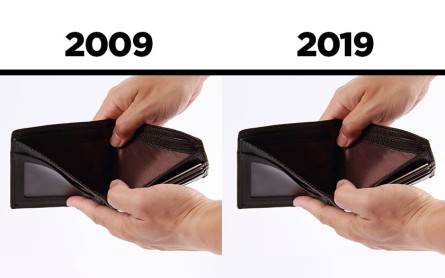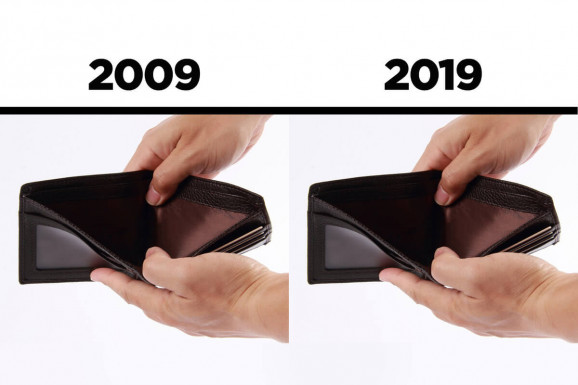
Planning & budgeting
Saving & investing
KiwiSaver
Tackling debt
Protecting wealth
Retirement
Home buying
Life events
Setting goals
Money tracking
Plan your spending with a budget
Getting advice
Studying
Get better with money
What pūtea beliefs do you have?
How to build up your emergency savings to cover unexpected costs
How to save your money
How to start investing
Find a financial adviser to help you invest
Your investment profile
Compound interest
Net worth
Types of investments
Term deposits
Bonds
Investment funds
Shares
Property investment
How KiwiSaver works and why it's worth joining
How to pick the right KiwiSaver fund
Make the most of KiwiSaver and grow your balance
How KiwiSaver can help you get into your first home
Applying for a KiwiSaver hardship withdrawal
How to use buy now pay later
What you really need to know before you use credit
How to get out of debt quickly
Credit reports
Know your rights
Pros and cons of debt consolidation
Credit cards
Car loans
Personal loans
Hire purchase
Student loans
Getting a fine
What happens if I start to struggle with moni?
How to protect yourself from fraud and being scammed
About insurance
Insurance types
Insuring ourselves
Wills
Enduring powers of attorney
Family trusts
Insuring our homes
Losing a partner
Redundancy
Serious diagnosis
How to cope with the aftermath of fraud
Separation
About NZ Super
This year's NZ Super rates
When you’re thinking of living in a retirement village
How to plan, save and invest for retirement
Manage your money in retirement
Find housing options in retirement
Four approaches to spending in retirement
Planning & budgeting
Saving & investing
How to build up your emergency savings to cover unexpected costs
How to save your money
How to start investing
Find a financial adviser to help you invest
Your investment profile
Compound interest
Net worth
Types of investments
Term deposits
Bonds
Investment funds
Shares
Property investment
View all
KiwiSaver
Tackling debt
How to use buy now pay later
What you really need to know before you use credit
How to get out of debt quickly
Credit reports
Know your rights
Pros and cons of debt consolidation
Credit cards
Car loans
Personal loans
Hire purchase
Student loans
Getting a fine
What happens if I start to struggle with moni?
View all
Protecting wealth
Retirement
Home buying
21 March 2019
Reading time: 3 minutes
Posted by Tom Hartmann,
0 comments

Guessing that most of us have come across the “#10YearChallenge” craze that’s been raging around social media this year. You just post a pic of yourself today next to one from 10 years ago. It started as a fun way to chart how time changes us (or not), then became a celebrity contest, and spawned a generation of new memes.
The environmentally aware crowd posted some of the starkest time-lapse images – perhaps the best use of the 10-year challenge fad.

Simply put, here’s what we don’t want to repeat for the next decade:

So instead of looking back 10 years, financially we need to look ahead to the next 10. Will we all be in a better position by 2029? That’s the idea.
Depending on where you are now, chances are you need to be growing moneywise for the future. Future needs tend to increase.
Even if you are winding down your innings, you’re probably thinking about the whānau and the future. So it’s still about growth.
Looking ahead to the next decade helps us set some long-term goals, which generally are the hardest to get into focus.
The short-term stuff (three years or less) is easiest – the next holiday, next birthday, next gadget, next concert. It’s easy to visualise where you want to be.
Medium-term goals (four to nine years) take a bit more planning, but are doable: killing the student loan, saving a house deposit, the kids’ education, becoming debt-free. Fun goals too, like that OE to Europe or Asia.
But the long-term goals (10 years plus) are truly a #10YearChallenge: paying off a mortgage, investing for retirement, etc. Time is on your side, so you can achieve much more than you anticipate.
Sorted’s goal planner gets you started spreading your goals through each of those three timeframes: short, medium and long term.
Another way to look ahead to the next decade is to chart where your net worth will be 10 years from now. Net worth, which is the amount you own minus what you owe, is a helpful measure to check if you’re really getting ahead financially.
In assessing your net worth, the numbers are less important as the direction in which they’re trending. Hopefully it’s up… and sharply up. The steeper the curve, the better off you’ll be.
Sorted’s net worth calculator is where you can plug in some numbers and get an idea of where you’ll be in 10 years. You can even make it a #20YearChallenge to look further out and take a longer-term view.
For now, I’ll just leave you with my favourite 10-year challenge so far:

In 10 years, will our situation be better or worse? Financially speaking, let’s make sure it’s better.
Use verification code from your authenticator app. How to use authenticator apps.
Code is invalid. Please try again
Don't have an account? Sign up
Or log in with our social media platforms


A free account gives you your very own space where you can save your tools and track your progress as you get ahead.
Or sign up using Google:



Comments (0)
Comments
No one has commented on this page yet.
RSS feed for comments on this page | RSS feed for all comments